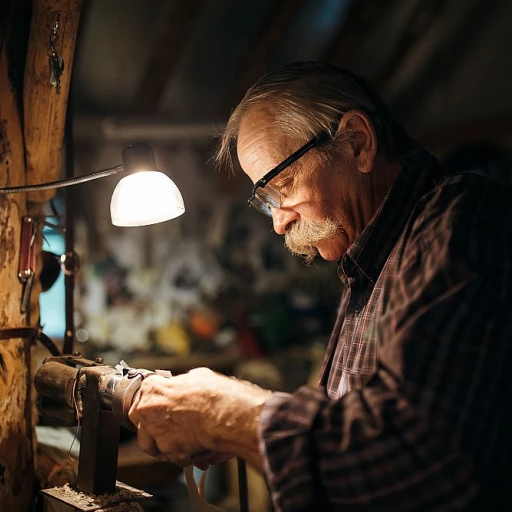-large-teaser.webp)
The Bespoke Boom: Why Personalization Wins in Luxury Leather
The Rise of Customization in the Leather Luxury Landscape
The past decade has seen a seismic shift in consumer preferences within the luxury leather goods market. Exclusive industry reports indicate that personalization in luxury offerings isn't just a trend, it's becoming a standard. A recent survey from Deloitte shows that over 36% of consumers are interested in personalized products or services, a number that's even higher among millennial shoppers, suggesting a bespoke boom is reshaping the industry.
Decoding the Personalization Phenomenon
At the heart of this bespoke renaissance is a desire for products that tell a story. As one discerning customer put it, 'When I invest in a bespoke leather piece, it isn't just an accessory, it's a narrative of my unique style.' This statement captures the zeitgeist of modern luxury shoppers who are not just buying a product, but an extension of their identity. Luxury analysts note that exclusivity has long been valued, but today, exclusivity means personalization. Owners of luxury leather brands are leveraging this insight to tailor their offerings.
Statistical Support for Bespoke Strategies
The numbers are impossible to ignore – the custom leather goods segment is flourishing. According to Technavio, the global personalized luxury goods market is projected to grow by nearly USD 31.66 billion during 2020-2025, progressing at a CAGR of over 5%. These statistics underscore the importance of integrating bespoke options into luxury leather collections to capitalize on market growth.
The Emotional Connection of Bespoke Leather
There's more to the luxury leather experience than mere ownership. It's the connection that forms between the buyer and the bespoke piece. Emotional engagement statistics from a study by McKinsey & Company reveal that consumers are 60% more likely to consider or purchase a brand if they love it. This love often blooms from the opportunity to be involved in the creation of a custom leather item, making point of sale an intimate and memorable event.
Mastering the Bespoke Narrative
Successful luxury leather brands have mastered not just the creation of bespoke pieces but also the storytelling around them. This narrative is not only important for distinguishing the brand but also for SEO purposes, drawing in consumers early in the buying cycle with targeted keywords such as 'custom leather goods,' 'luxury personalization,' and 'bespoke leather accessories.' An astute mix of compelling narrative and strategic keyword placement can result in significant organic traffic to luxury leather purveyors, enhancing their digital footprint dramatically.
Crafting Uniqueness: The Art of Custom Leather Creations
The Mastery Behind Bespoke Leather Goods
The world of luxury leather is not just about selling a product; it's about selling a story, a legacy crafted by hands that understand the significance of each stitch. In the realm of bespoke luxury leather goods, artisans elevate common accessories to objets d'art, embedding personality and preference into every piece. According to a study by Bain & Company, personal luxury goods markets grew by 5% in 2021, underscoring the proliferation of bespoke's allure.
Essence of Elegance: Tailor-Made Leather Experience
Imagine a wallet or handbag that isn't just made with premium leather but is designed to resonate with the owner's essence. The appeal of custom leather products lies not only in their aesthetic but also in their ability to reflect the buyer's individuality. The trend of monogramming, for example, has seen an uptick with Forbes reporting that personalization can increase sales by up to 10%. This tailoring of experience extends beyond the product to include personalized packaging, which can enhance the customer's unboxing experience, deepening brand affinity.
Artisanship and Innovation: Blending Traditions with Technology
Bespoke is not a static art; it evolves, weaving together age-old techniques with cutting-edge technology. Usage of 3D modeling tools to preview personalized goods is a fine example, revolutionizing the customer experience. These tools, while adding a layer of modernity, do not detract from the timeless appeal of handcrafted goods—a conjunction that's critical in luxury leather's playbook. A survey by Deloitte pointed out that 36% of consumers are interested in personalized products or services, highlighting the importance of integrating innovation with traditional craftsmanship.
Sustainable and Select: The Role of Exclusive Materials
Conscious consumerism is making waves in the luxury market, with customers increasingly looking for sustainable options. Ethical sourcing and the use of high-quality, exclusive materials have become pivotal in maintaining a luxury brand's cache. Exotic leathers, eco-friendly tanning processes, and transparency in the supply chain are becoming significant selling points. According to the Global Luxury Goods market report, sustainable luxury goods are forecasted to grow at a CAGR of about 6.8% between 2021 and 2025.
Case Studies: Tales of Bespoke Brilliance
- Case of the Personalized Portfolio: A high-profile executive seeking a custom-made portfolio with an embossed family crest and integrated smart tech compartments.
- Success of the Signature Satchel: A celebrity's creation of a signature leather satchel resulted in a waitlist of hundreds seeking similar personalization, leading to a surge in brand visibility and sales.
- Philanthropy Meets Fashion: A luxury brand partnering with a wildlife conservation group to create limited-edition, ethically-sourced leather bags, with proceeds supporting habitat preservation.
Engaging the Market: Marketing Strategies for Bespoke Leather
The Digital Frontier: Mastering Bespoke Luxury Leather Online
As the trend for personalized luxury leather goods skyrockets, leveraging the digital landscape has become an imperative strategy for bespoke brands. According to Statista, e-commerce in the fashion industry is projected to reach $672.71 billion by 2023, and luxury brands are poised to claim a significant share. By utilizing search engine optimization (SEO) with keywords like 'bespoke leather goods', 'custom leather luxury', and 'personalized leather accessories', companies can ensure their online presence commands attention.
Storytelling as a Tool for Conversion
Digital savvy consumers don't just look for products; they seek experiences. A brand's narrative, especially in the luxury leather sector, is paramount in capturing their audience. Through eloquent storytelling, brands can illustrate the craftsmanship and passion behind each custom piece. For instance, a Google search for 'art of luxury leather' yields top-tier brands that often share artisans’ tales and customer experiences, engaging potential buyers by showcasing the uniqueness and personal touch behind their offerings.
Leveraging Social Media's Viral Potentials
Social media has proven to be a goldmine for engaging potential customers, with Instagram's visual platform being particularly beneficial for luxury leather goods. A well-curated Instagram feed can reflect the bespoke nature of a brand's products, attracting followers and converting them into customers. Brands like Hermes and Louis Vuitton have effectively used Instagram to highlight their bespoke services, offering unique behind-the-scenes looks which resonate well with their audience. Making use of hashtag research to include tags such as #BespokeLeather, #LuxuryLeather, and #MadeToOrder can broaden the reach and connect with the relevant audience.
Embracing Influencer Partnerships
Influencer marketing continues to be a strategic component, with 63% of consumers trusting influencer messages over what a brand says about itself, according to Nielsen. Bespoke luxury leather brands can partner with influencers who embody their target demographic to amplify their message authentically. This collaboration can take the form of sponsored posts or long-term brand ambassadorships, often resulting in increased brand visibility and credibility.
Content That Converts: SEO and Blogging
Creating detailed blog content that delves into the specifics of personalization, materials, and design processes can significantly boost a brand's SEO rankings. By providing analytical and thought-provoking content, luxury leather goods businesses can position themselves as authorities in the field, which is essential to rank higher in search engines. Regularly publishing content that answers customer queries, such as 'how to select bespoke leather' or 'benefits of custom leather accessories', can attract a steady stream of organic traffic to the brand's website.
Investing in Ad Campaigns
While organic traffic is valuable, paid advertising campaigns on Google and social media platforms can accelerate brand visibility. By targeting specific keywords and demographics, luxury leather brands can ensure their bespoke products appear before the right eyes. Statistics show that click-through rates (CTR) for luxury goods can increase dramatically with well-targeted ads, making it a worthwhile investment for those looking to expand their reach and boost sales.
The Price of Exclusivity: Balancing Costs and Perceived Value
Setting the Right Price Tag for Bespoke Brilliance
One of the most critical components when dominating the luxury leather market is striking the delicate balance between cost and perceived value. A recent study showed that 68% of high-income shoppers are willing to pay a premium for products tailored to their personal style (Luxury Institute). Crafting a pricing model for bespoke items is more than just number crunching; it involves inciting a feeling of obtaining something irreplaceable.
Creating Perceived Value Through Exclusivity
Creating exclusive leather goods adds to the allure of a bespoke product. When customers perceive they are getting something unique, handcrafted just for them, they realize the worth beyond the price tag. For instance, the success of brands like Hermès lies not just in the quality of their products but in their scarcity and exclusiveness. This exclusivity can justify a higher price point as it heightens the product's desirability.
Investing Wisely in Premium Materials and Skilled Artisans
- High-Quality Leather: Customers expect the pinnacle of material selection for their custom pieces. They don't simply buy a product; they buy a promise of premium quality.
- Master Craftsmanship: Skilled artisans are the backbone of bespoke luxury. Investing in exceptional craftsmanship can increase the value proposition of every product created.
Budget allocation to these areas also needs to be reflected in final pricing to ensure a sustainable business model, which is something even investors look for before engaging with new luxury brands.
The Competitive Edge of Pricing Transparency
Transparency is becoming increasingly important in the luxury leather industry. A study by Label Insight found that up to 94% of consumers are likely to be loyal to a brand that offers complete transparency. This practice can extend to the pricing of bespoke leather goods, where detailed breakdowns of costs help justify the premium prices and build trust with high-end clientele.
Maximizing Value with a Strategic Pricing Model
Implementing a strategic pricing model is vital for sustaining profitability while inviting consumer interest. This model can include:
- Cost-Plus Pricing: Starting with costs and adding a markup percentage for profit.
- Value-Based Pricing: Pricing based on the perceived value to the customer rather than just the cost of production.
Choosing the right pricing strategy can mean the difference between a luxury brand that thrives and one that merely survives.
Fostering Consumer Relationships: The Aftercare Advantage
Building Lasting Bonds through Premium Aftercare
Bespoke luxury leather goods come with an expectation of unparalleled quality, and a critical component of meeting that expectation is premium aftercare service. Statistics from the luxury consumer market highlight that over 70% of high-end customers consider after-sales support to be integral to their purchase. By offering dedicated maintenance advice, repair services, and even warranty programs, brands can solidify a sense of loyalty and trust with their clientele. This aftercare element isn't just an added service; it is an extension of the brand's commitment to excellence and its relationship with consumers.
- Complimentary cleaning and conditioning services enhance product lifespan
- Exclusive warranty programs that reassure customers of their investment
- Personalized tips for leather care that cater to each item's unique characteristics
Implementing Customer-Centric Aftercare Strategies
Implementing a robust aftercare program requires an understanding of the unique needs of luxury leather aficionados. A 2019 survey revealed that 80% of luxury buyers are more likely to make another purchase when post-sales services exceed expectations. By instituting easily accessible repair services or an on-call concierge for care advice, brands demonstrate a commitment that transcends the point of sale. It's about forging an enduring connection that ensures the customer feels valued and their bespoke items remain in pristine condition.
Leveraging Aftercare for Brand Advocacy
Consumer relationships fostered through exemplary aftercare go beyond repeat business; they can transform customers into brand advocates. A statistic by a leading customer experience advisory firm indicates customers who receive exceptional aftercare are 50% more likely to advocate for the brand. This accolade from the source that matters the most—the customer—not only reinforces branding efforts but also generates invaluable word-of-mouth marketing. Knowing how to leverage positive aftercare experiences can lead to glowing testimonials and referrals, enhancing the brand's prestige within the luxury market.
The Value-Added Appeal of Educational Aftercare Content
Creating educational content around leather care and maintenance adds value to the consumer experience and establishes the brand as an authority in leather craftsmanship. For example, detailed blog posts, how-to videos, and real-time Q&A sessions on caring for bespoke leather items can engage users and keep the brand top of mind. Furthermore, a report from a prominent market research firm outlines that brands that position themselves as educational leaders enjoy 56% more customer trust. This strategy not only enriches the customer experience but also contributes significantly to organic search traffic, tapping into high-performing SEO keywords around leather care and maintenance.
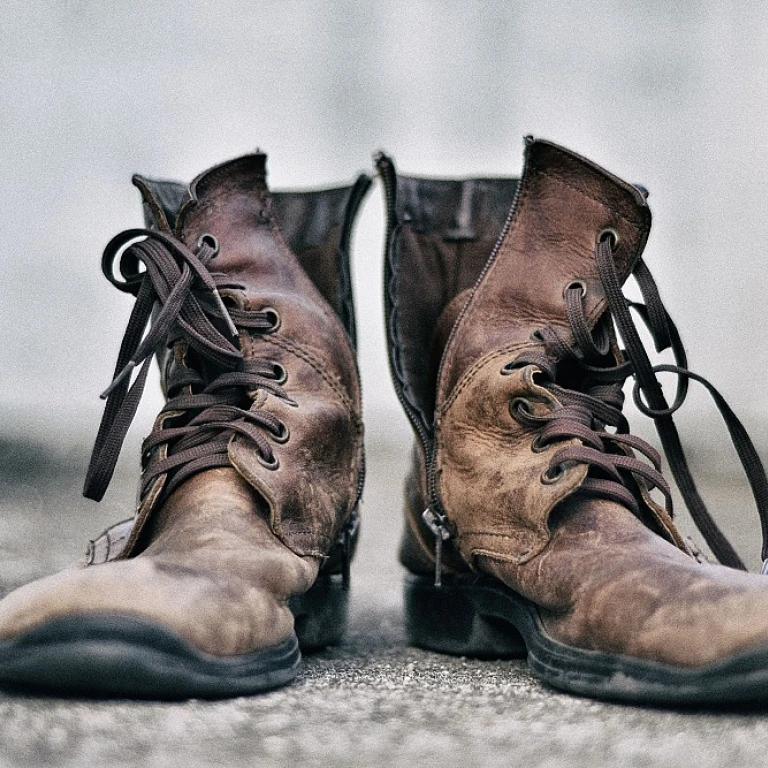
-large-teaser.webp)
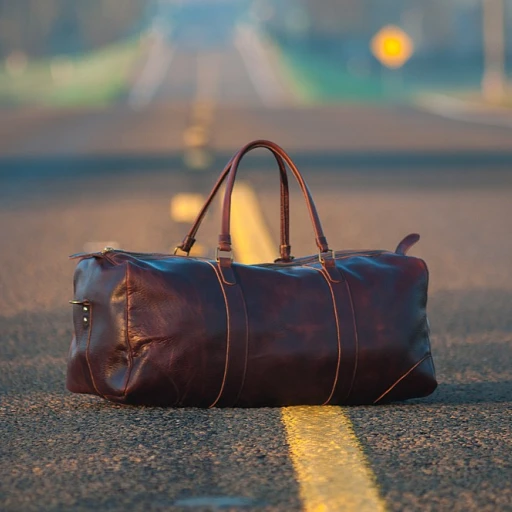
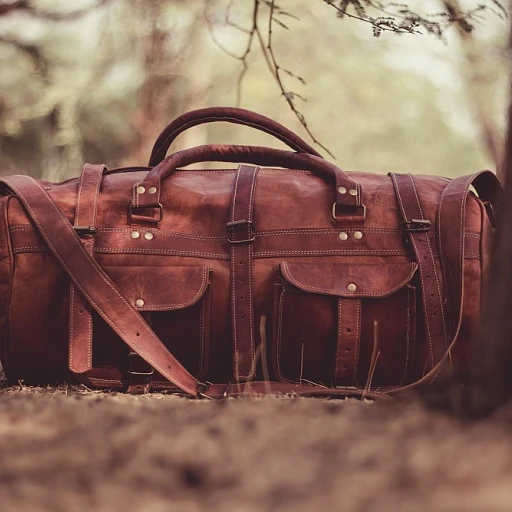
-large-teaser.webp)
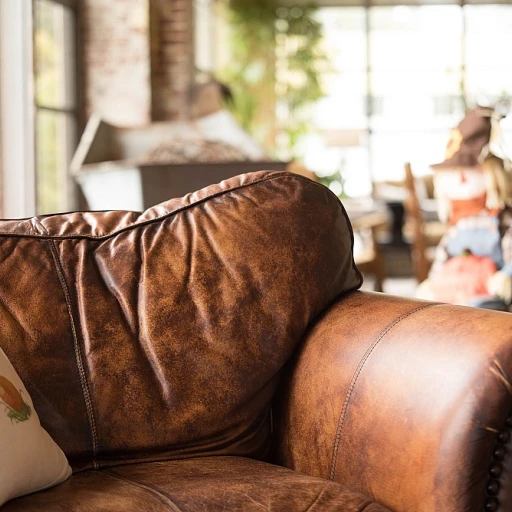
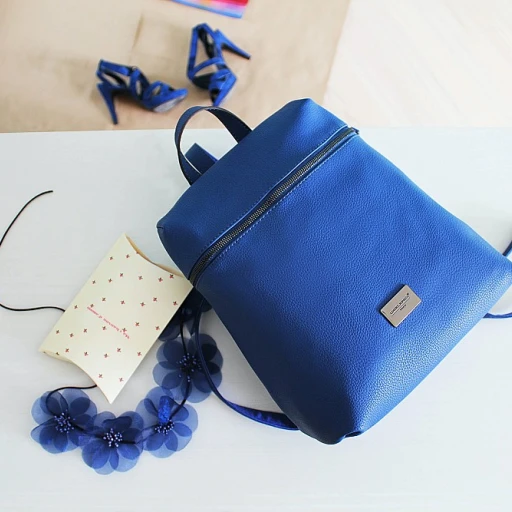
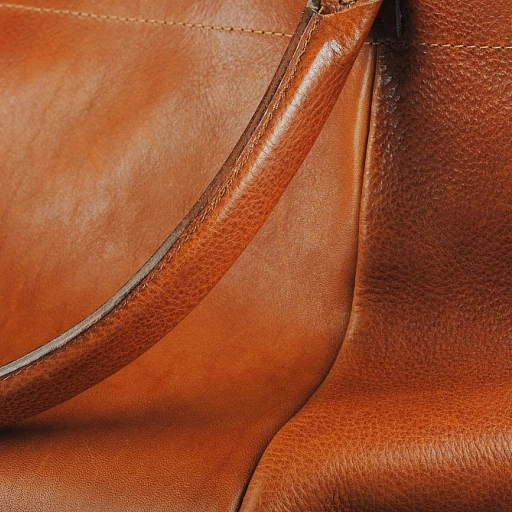
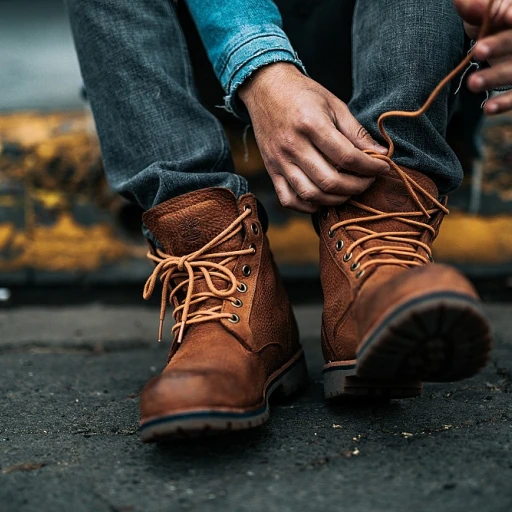
-large-teaser.webp)
-large-teaser.webp)
-large-teaser.webp)
